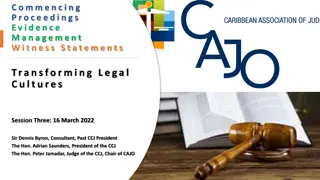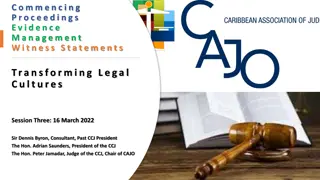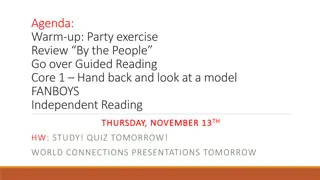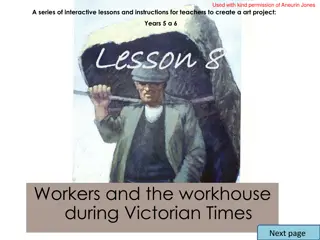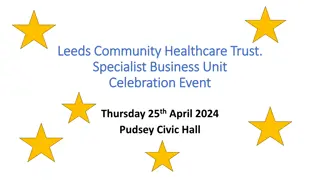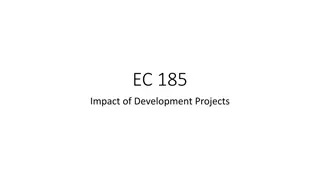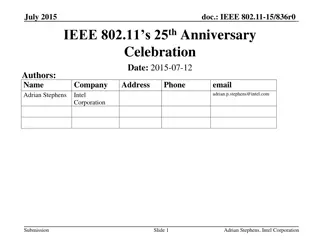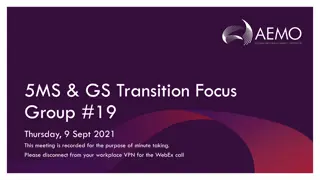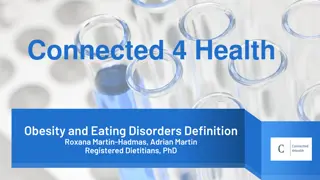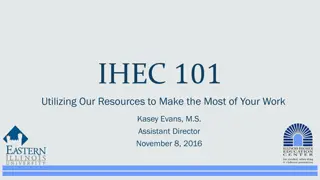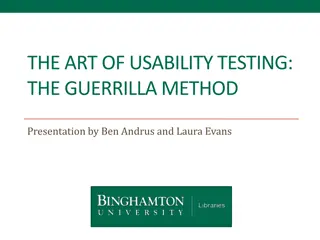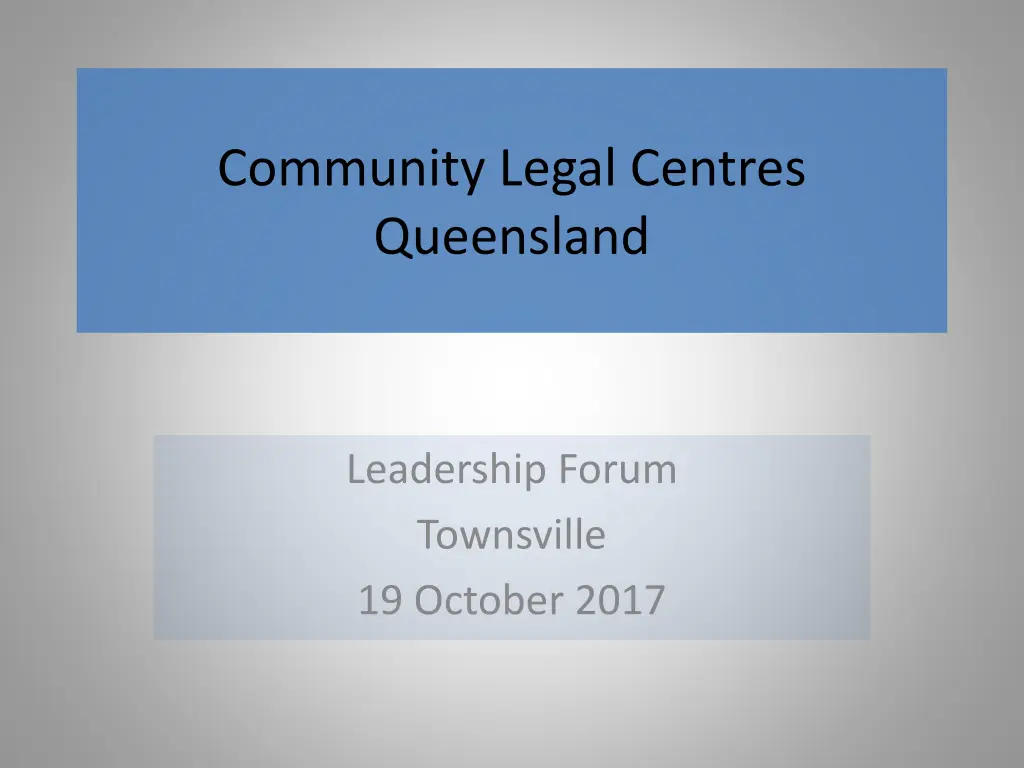
Ethical Practice and Responsibilities of Legal Practitioners
Explore the ethical principles and obligations of legal practitioners, including the hierarchy of duties towards the law, society, court, and clients. Learn about different lawyer types such as the Zealous Advocate, Responsible Lawyer, and Moral Activist, and how they perceive their roles in the legal system.
Uploaded on | 1 Views
Download Presentation

Please find below an Image/Link to download the presentation.
The content on the website is provided AS IS for your information and personal use only. It may not be sold, licensed, or shared on other websites without obtaining consent from the author. If you encounter any issues during the download, it is possible that the publisher has removed the file from their server.
You are allowed to download the files provided on this website for personal or commercial use, subject to the condition that they are used lawfully. All files are the property of their respective owners.
The content on the website is provided AS IS for your information and personal use only. It may not be sold, licensed, or shared on other websites without obtaining consent from the author.
E N D
Presentation Transcript
Community Legal Centres Queensland Leadership Forum Townsville 19 October 2017
Inside Ethical Practice Adrian Evans Monash Law School
Obligations of Legal Practitioners In general terms, the obligations of legal practitioners comprise a hierarchy of duties: To the law/society To the court Moral Activism Responsible Lawyering To clients Zealous Advocacy Relationship of Care To others Note: The duty to clients is third on the list! Adrian Evans Monash Law School 2017 3
Two main sources of ethical principles and rules* 1. Moral philosophy Kantian Consequentialism(sometimes called utilitarianism ) Virtue ethics religious experience 2. Legal philosophy four possible lawyer types the zealous advocate traditional conception the responsible lawyer duty to the court the moral activist law reform is primary, and the relationship of care or ethics of care ; relationships are all that really matters Note: Professional conduct rules are not prominent! Adrian Evans Monash Law School 2017 4
1st Lawyer Type Zealous Advocate the traditional conception of a lawyers role My client at all costs The view that lawyers ethics are governed by their role as an advocate in an adversarial legal process/complex legal system Partisanship; loyalty; non-accountability to others Adrian Evans Monash Law School 2017 5
2nd Lawyer Type Responsible Lawyer a lawyer is an Officer of the Court Lawyers ethics are governed by the role of facilitating justice according to law The duty to the court takes priority over the duty to anything/anyone else (incl. duties to any client) Adrian Evans Monash Law School 2017 6
3rd Lawyer Type Moral Activist Public Interest Lawyering Substantive justice, law reform and the public interest define what a lawyer s role should be, that is, to advance justice its NOT a lawyer s role to automatically support the adversarial justice system Although not an exact fit to any of the mainstream ethical methods, this approach requires the lawyer to apply whichever method they find most convincing to their practice as a lawyer. Adrian Evans Monash Law School 2017 7
4th Lawyer Type Ethics (or Relationship) of Care (Moral Dialogue) Finally, the view that the social and political role of lawyers is irrelevant Relational ethics (the Ethics of Care) should guide lawyers (and clients), as it should everybody else Your primary obligation is to ensure that your clients, your colleagues and your family, survive legal practice. Adrian Evans Monash Law School 2017 8
Which type of lawyer do you most identify with? Adrian Evans Monash Law School 2017 9
Table of Ethical Methods* orApproaches Methods/ Approaches Basic Description of Approach Differences from Other Approaches Right actions or policies are those that primarily enhance and respect individual autonomy by treating persons as ends rather than means . The deontological approach emphasises the rightness of process rather than consequences. Kantian methods are concerned to refute the notion that the end justifies the means arguing that the means, since they often involve what happens to individuals, are at least as important as outcomes. Kantian ethics are therefore usually wary of utilitarian approaches. Kantian Deontological fairness the ultimate Kantian ethics suggests that individuals human rights cannot be sacrificed to larger national policies or the greater good . Right or morally good actions or policies are those that bring consequences than any of the other realistic alternatives. Otherwise known as maximising the public good , utilitarian methods suggest that the utility of an action or policy, even if it might subordinate individual autonomy, is justified because it produces the greatest good for the greatest number . about better Consequential or Teleological / Utilitarian To take an extreme case, a utilitarian approach might justify, for example, the death of a few people from induced bird flu, in order to save many by helping to develop a vaccine against the virus. The categorisation of an act as ethical or unethical is not determined by its impact as such, but by the quality or character of its actor. Virtue ethics is enjoying a radical return to favour among many moral philosophers and legal ethicists because of the emphasis on nobility of motive and the importance of recognising complexity rather than providing simplistic answers. Virtue ethics approaches derive from Aristotle s classical emphasis on right character as a personal virtue. This approach transcends both Kantian and Utilitarian approaches because it is simply unconcerned with what may happen to because that can never be accurately predicted and looks at how an individual is motivated at a profoundly personal level. Thus, if the actor is good , so also will be theact . Virtue Ethics goodness Notions of good and bad, noble and ignoble, deplorable and admirable populate virtue ethics, rather than whether someone is for or against a rule, or considers an action or policy permissible or obligatory , etc. * *Adapted from Marcia Baron, Philip Pettit and Michael Slote, Three Methods of Ethics A Debate: For and Against Consequences, Maxims and Virtues, Blackwells, Oxford, (1997). Adrian Evans Monash Law School 2017 10
Scenario 1 (from Inside Lawyers Ethics, 1st edn, p 256) You are the lawyer for a mother of three small children in a divorce. Your client has previously shown you some old photographs of bruises and marks on the children that she, unconvincingly, claims were inflicted not by their father, but by her new boyfriend. One of the children now has recurring headaches. Your client now instructs you to stop all legal proceedings as she intends to return to the children's father with her children. You believe her decision puts her children at risk and transgresses Her responsibility to them as a parent but your client informs you, as she leaves, that your legal responsibility is over and she will not be seeing you again. Would you break the rule about client confidentiality and inform the relevant welfare department of your fears? Adrian Evans Monash Law School 2017 11
Australian Solicitors Conduct Rules 2015 9. CONFIDENTIALITY 9.1 A solicitor must not disclose any information which is confidential to a client and acquired by the solicitor during the client s engagement EXCEPT as permitted in Rule 9.2. 9.2 A solicitor may disclose information which is confidential to a client if: 9.2.1 the client expressly or impliedly authorises disclosure; 9.2.2 the solicitor is permitted or is compelled by law to disclose; 9.2.3 the solicitor discloses the information in a confidential setting, for the sole purpose of obtaining advice in connection with the solicitor s legal or ethical obligations; 9.2.4 the solicitor discloses the information for the sole purpose of avoiding the probable commission of a serious criminal offence; 9.2.5 the solicitor discloses the information for the purpose of preventing imminent serious physical harm to the client or to another person; . Adrian Evans Monash Law School 2017 12
Has your view of your preferred lawyer type changed or been confirmed by your reaction to this scenario? Adrian Evans Monash Law School 2017 13
Scenario 1 others reactions Respondents who would break confidentiality and advise authorities about suspected child abuse from 2001 law students study* inform welfare department 500 400 300 200 Frequency 100 0 yes no inform welfare department Adrian Evans Monash Law School 2017 14
Scenario 2 You are appearing in the local court for a client who is charged with breaching the other income limits of their Centrelink allowance. Your client is destitute and you have no doubt at all that the additional income has been vital to their survival on the streets Just before the hearing is to commence, you learn that your client has continued to earn additional income, after the breach was actioned by Centrelink, but this fact seems not to have come to the attention of Centrelink. What would you do with this information? Adrian Evans Monash Law School 2017 15
A Query Consider: I feel uncomfortable with the idea that you may be misleading a court or tribunal by omission, if I say something like "[X] has instructed me that her only source of income is the Centrelink pension , when I know otherwise. I m not lying, but I am omitting information which is relevant to the proceeding and known to me. Do I have a duty to provide all relevant information? Adrian Evans Monash Law School 2017 16
Does ASCR Rule 9 change or confirm, your view of Scenario 2? Adrian Evans Monash Law School 2017 17
Scenario 3 You are the manager of a regional CLC with many volunteers, many of whom deliver after hours legal services to a diverse set of clients who include those with Pacific Islander, Aboriginal and Torres Strait backgrounds. All volunteers are supervised by lawyers with practising certificates. It is mid-morning. You have just been approached by a night volunteer who, last night, saw an older woman who was interviewed by police earlier in the evening. The volunteer is very distressed and says her client has suffered from many years of abuse by her male partner. She says her client had had enough. Yesterday afternoon, her client was charged with a serious assault on him. Your volunteer is a determined and courageous paralegal, who is well- connected locally to diverse groups of clients. She has come direct to you as she knows you are a close friend of the director of the other legal centre in the same city. She tells you she also volunteers at the other centre and that she went there first thing this morning to check the files to see if the male partner had seen anyone at the other centre. Her client had told her that her (ex) partner was a frequent client there. She says she found nothing relevant in those files, but she wants you to ensure that the other (male) party does not object to an interim intervention order, which she intends to apply for this morning. What will you do? Adrian Evans Monash Law School 2017 18
Managerial ethics questions Discuss: are your reactions dominated by consequences, fairness, or a virtue ethic? If the last, which virtue? ***** Also at the conflicts level consider: volunteers in CLC's viz- a-vis their day jobs; professional indemnity insurance (which merges with ethics); the quality of supervision of volunteers; training; file recording; staff debrief-case discussion; the possibilities for a general cross-CLC protocol for ethics dialogue among Queensland CLC s. Adrian Evans Monash Law School 2017 19
Scenario 4 You are a regional CLC manager. You are contacted urgently by Stop Adani, who want you to support imminent tort-based litigation to defend the climate, on behalf of a group of barrier reef dive tour operators. Stop Adani has received advice (paid for by the ACF), that Adani s proposal to begin their huge mine can, as a matter of admissable evidence, be causally connected to the death of reef corals on which the dive tour industry depends. You are asked to divert CLC staff resources into the litigation - by identifying, recruiting and managing pro bono counsel, in conjunction with private class action firms - and make urgent submissions to the State Government for last minute law reform, based on the tour operators projections of falling tourist numbers. Your governing board hears of the proposal and requests an immediate board meeting, with a view to directing your response Discuss and decide what ethical approach you will take in the Board meeting? [Then role play the meeting in your small group] Adrian Evans Monash Law School 2017 20
Defending your reputation We have nothing but our reputations to 'sell' to clients or the wider community, because ultimately, technical skill is assumed, and becomes a secondary consideration. Lawyers, like all professionals, take years to develop a reputation and then spend only minutes losing it, often because they act impulsively when angry or frustrated. Sometimes, lazy thinking is to blame. This seminar was about substituting ethical thought for frustration or laziness. Preventing ethical pitfalls can be summed up in one virtue ethics question: Do my peers and clients regard me as a person of integrity? Tips for defeating ethical panic Take time to decide; never make a rushed decision if the problem offends your smell test Consult with your peers - note that the new ASCR are likely to permit this without you breaching client confidentiality If still in doubt, speak confidentially with the Bar or QLS Ethics Committee , to get another view Record your doubts, if they remain. Adrian Evans Monash Law School 2017 21
Further reading M Baron, P Pettit and M Slote, Three Methods of Ethics A Debate: For and Against Consequences, Maxims and Virtues, Blackwells, Oxford, 1997 Justin Oakley and Dean Cocking, Virtue Ethics and Professional Roles, Cambridge, Cambridge, 2001 Tim Dare, Virtue Ethics and Legal Ethics in Seven Essays on Professional Ethics, Duncan Webb (ed), Victoria University of Wellington, 1998 Adrian Evans, The Good Lawyer, Cambridge, Melbourne, 2014 Christine Parker and Adrian Evans, Inside Lawyers Ethics, 2nd edn, Cambridge, Melbourne, 2014. Adrian Evans Monash Law School 2017 22




